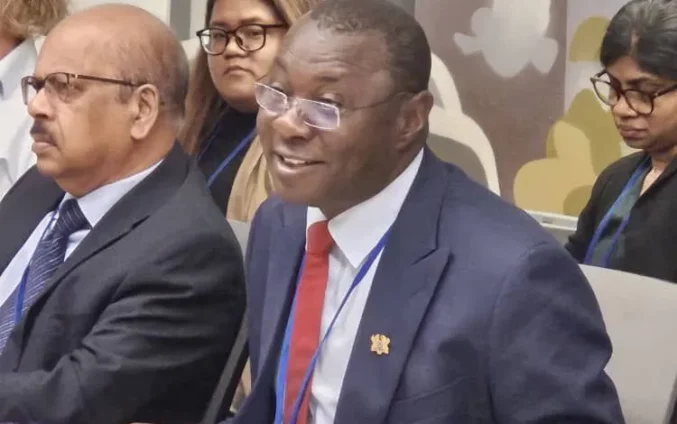The International Monetary Fund (IMF) has urged Ghana’s government to improve the country’s energy sector governance architecture to address the challenges that have contributed to recent irregular electricity supply.
Dr Mohammed Amin Adam, Finance Minister, recently said that Ghana’s energy sector has a financing gap of about US$1.9 billion.
He has since called for private sector investment in the energy sector, assuring that the government had set it up for profitability.
“Progress has been made in increasing transparency and in addressing the sector’s shortfall – including by implementing tariff increases, but more needs to be done to improve governance and reduce technical and commercial losses,” the IMF said.
The Fund said in a correspondence with the Ghana News Agency that the energy sector remained critical to Ghana’s economy, with current power disruptions “undoubtedly affecting many people’s lives.”
In response to the GNA’s inquiries, the Fund emphasized the significance of improving the energy sector’s governance framework, particularly addressing technical and commercial losses.
It said that under its current US$3 billion Extended Credit Facility (ECF) programme with Ghana, the Fund, in partnership with the World Bank, is supporting the government in implementing reforms in the sector.
“These reforms will take time, and we remain committed to working with the government to help build a more sustainable and resilient energy sector for Ghana’s future,” the Spokesperson, said.
In an interview with GNA, Nana Amoasi VII, Executive Director, Institute of Energy Security (IES), said the call by the Fund signified the need for enhanced transparency, accountability, efficiency, and effectiveness in managing and regulating the energy sector.
He said the IMF’s call also highlighted concerns about Ghana’s energy sector’s financial instability, particularly in the power sub-sector, which is influenced by issues such as debt mismanagement, low revenue generation, and fiscal indiscipline.
Nana Amoasi VII suggested that those concerns be addressed by a comprehensive strategy that includes legislative and policy reforms, stakeholder collaboration, monitoring and evaluation, public awareness, and technology innovation.
“It is equally important to consider strengthening regulatory institutions and ensuring policy consistency and coherence. We also cannot overlook the financial management and sustainability of the sector,” he said.
Latest Stories
-
Gideon Boako donates 10 industrial sewing machines to Yamfo Technical Institute
6 mins -
‘Golden Boy’ Abdul Karim Razak honored at WAFU-B general assembly
20 mins -
Buipewura Jinapor secures Vice Presidential position in National House of Chiefs with record votes
29 mins -
2024 election: I want results to come out like ‘milk and honey’ – Toobu
31 mins -
Ghana’s Henry Bukari hands over chairmanship of ECOWAS Brown Card Council of Bureaux
36 mins -
Residents of Dome-Kwabenya on edge ahead of December elections
1 hour -
Moffy drops new single ‘Wo’, blending culture and modernity
1 hour -
Don’t bring soldiers to polling stations – Martin Kpebu
2 hours -
Ogyeahohuo Yaw Gyebi II retained as President of National House of Chiefs
2 hours -
Embrace ICT to fit in digital world – Ho NYA boss to youth
3 hours -
We don’t want armed soldiers at polling stations – Tanko-Computer
3 hours -
Drama as police corner armed robbers inside locked forex bureau at Lapaz
3 hours -
NEIP CEO to Kwaku Manu: You can support any political party, but stop misbehaving in NPP colours
3 hours -
30% quota for less privileged shows Free SHS is inclusive – Ofosu Nkansah
3 hours -
Nigerian-born conquers childhood hearing loss to become KNUST’s overall best graduating student
3 hours

